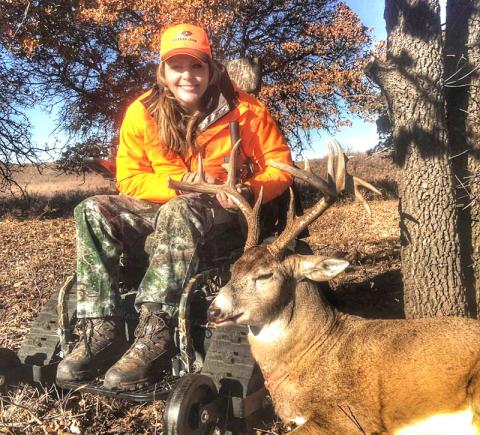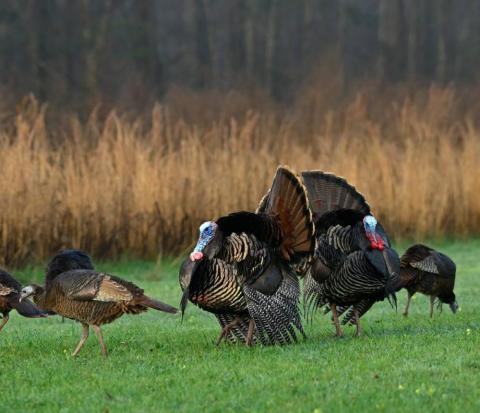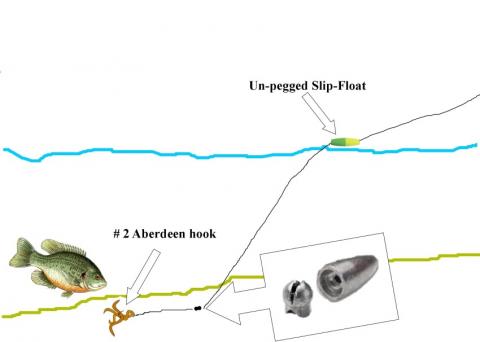Hunting is a rite of passage for many families. Many kids wait for the day they’re old enough to join you on your hunting trips. However, not all children are the same, and some might be less excited or interested than others.
Before you can get your kids excited for their first hunting trip, you’ll need to get them enthusiastic about the outdoors. You’ll also need to change your hunt’s focus from targeting your prey to the kids’ enjoyment.
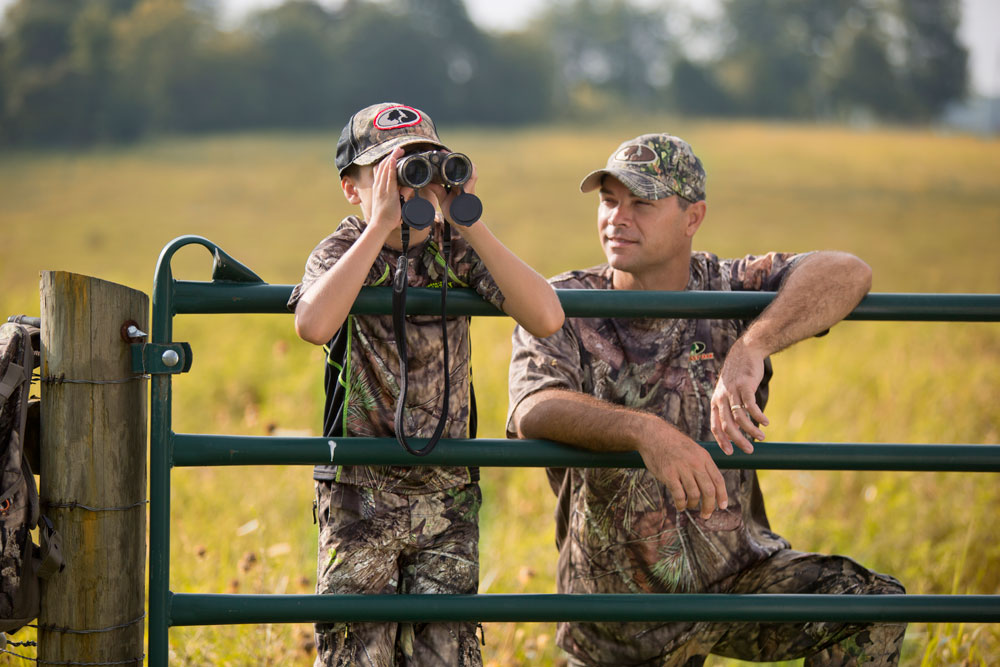
Introducing a Love of the Great Outdoors
A love of hunting stems from an appreciation for the great outdoors. It’s good to encourage this from a young age by teaching kids about bugs, plant life, and animals in your backyard. Showing them animal tracks or going bird watching can nurture respect for wildlife that is integral for any hunter to develop.
Spend time with your kids outside through their formative years, and educate them about the different kinds of plants that grow locally, take them hiking, and lead by example. Treat local forests like you are a guest, leaving no trace behind. If you live in an urban area and travel for hunting season, you can expose kids to the outdoors early through summer day camp or sleep-away camps that incorporate nature into their programs.
Dressing for the Weather
A big part of hunting success is having the right gear and learning how to use the iconic camouflage pattern. When your children are preparing for their first hunting trip, going shopping to select their own youth hunting clothes can build their anticipation.
Ensure they choose appropriate gear for the terrain and the season so they can blend in and stay warm and dry. Consider purchasing more gear for your kids than you anticipate needing, in case they require additional layers or a change of clothes while you’re out in the wilderness. Kids won’t enjoy the journey if they become cold or wet.
Involve Them in the Process
Letting your kids participate in the hunting trip’s planning is a great way to make sure they’re engaged and excited about the big day. Allow them to help choose the hunt’s location, the timing, and the day, so they feel they’re doing more than merely tagging along. Your children might want to pick out their clothing for the occasion, especially if they have new hunting gear to wear, so let them make those choices on their own, with some guidance from you to ensure adequate preparation for the weather conditions.
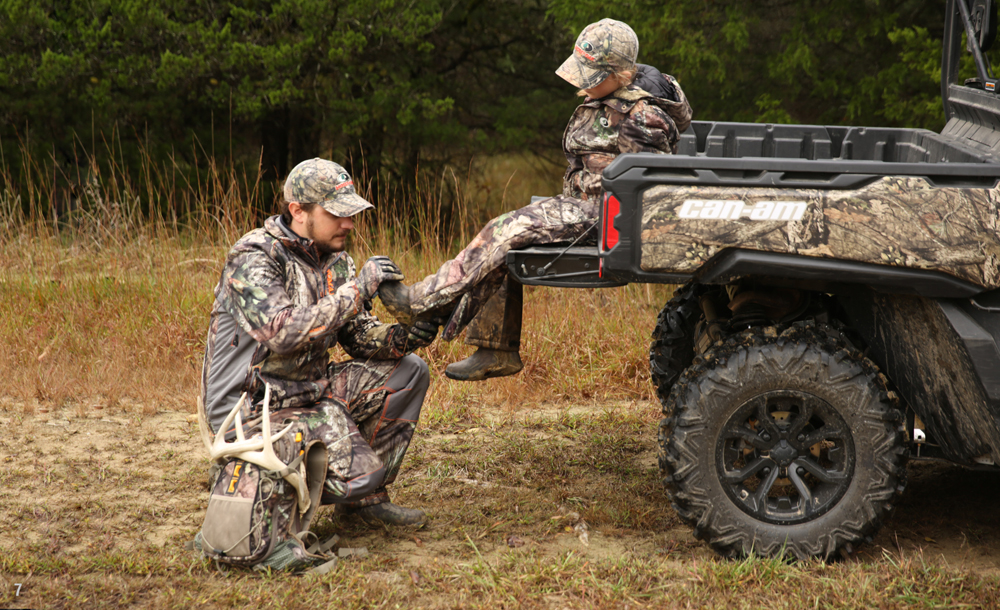
Celebrate When They Come of Age
It’s vital to check local laws and regulations for youth hunting, so you’re aware of what age your children must be before they are allowed to join you on a hunting expedition.
How old do you have to be to go hunting in America? Ages vary by state, with many states setting a minimum age limit of 12 years old. Once you’ve confirmed the age at which your children can hunt, you can amp up their excitement around their birthdays that year. For younger kids, giving a safety training course as part of their gifts can help create excitement around a training session that might otherwise seem like work.
You should also avoid pushing your children into hunting earlier than they are comfortable with. The decision to hunt and participate in that action is a big decision that can have a significant impact. If they express they aren’t ready, even though they’re eligible to hunt at that time, it’s necessary to respect those feelings.
Create a Positive Attitude Toward Safety
Communicating the importance of firearm and bow safety is a critical step in getting your children ready to hunt for the first time. The lessons they learn in these formative years will affect their behavior as hunters in the future. Setting a good example is critical and teaches them that everyone has more fun in a safe environment.
Reward patience and attention to safety procedures with praise and assign specific tasks to your children so they are responsible for safety on the hunting trip as well. Have them answer questions about firearm safety regularly to create a sense of the importance of understanding protocols. Ensure your children have the proper training. Even if they aren’t going to be handling a firearm, they might require a certificate or tag to join you while hunting.
Encourage Questions
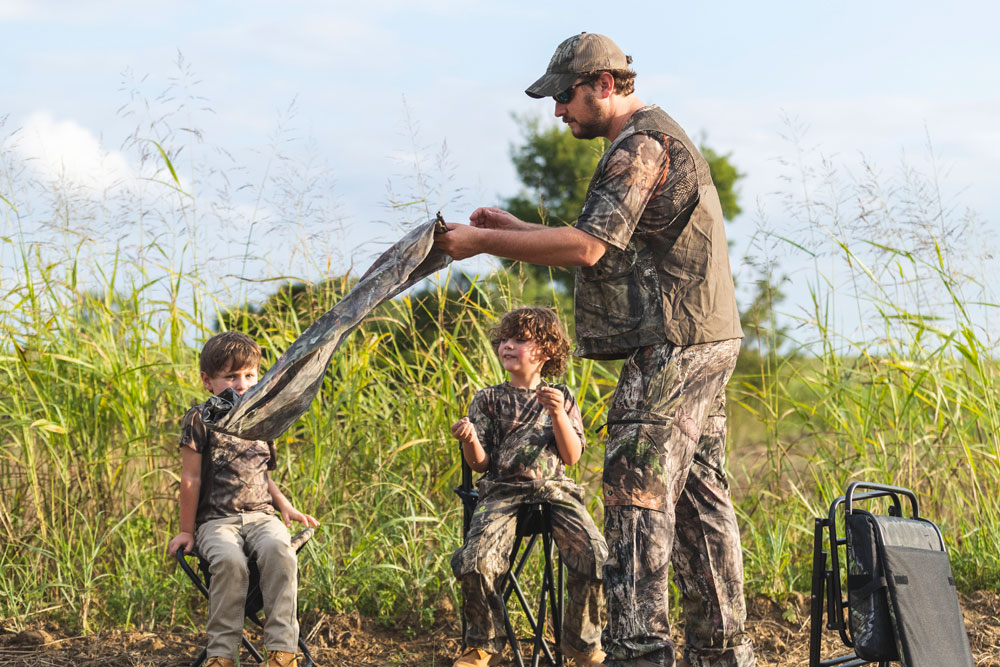
Kids have lots of questions and curious minds. There will be a lot of unfamiliar steps in the process of preparing to hunt for them. If you are open to answering these questions, and do so with enthusiasm and encouragement, they will feel comfortable and confident to hunt with you.
Empower your kids to do their research on hunting, as well, so that they can contribute more to the experience. Let them look up the best areas to hunt near your house or your hunting cabin and ask them to tell you what kind of game lives in the region that you can hunt ethically and legally. The more involved they become, the more excited they will be.
Keep the First Hunt Short
Kids have naturally short attention spans of roughly three to five minutes per year of age. For example, if your children are ten, you can expect that age group to concentrate comfortably on one task for 30-50 minutes. That means you should keep your first hunting trip short so the novelty doesn’t wear off too quickly.
While a short trip may mean it’s not as lucrative for you as hunting on your own or with friends, to your children the experience will be much more meaningful if it's enjoyable from beginning to end. As your children get more hunting trips under their belts, you can gradually extend the excursions’ lengths to a more productive period.
When you take your kids hunting for the first time, the focus shifts from the prey to make it a positive and safe environment for your children. The lead-up to the hunt can be a fun process if you’re ready to support your kids in this new chapter and build a special bond between you through shared experience.














